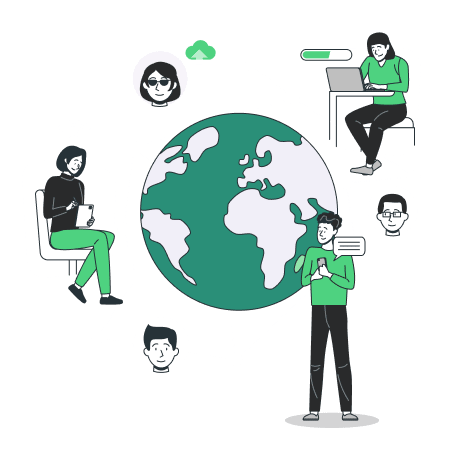Gen Z and Global Capability Centres in India: Redefining Recruitment, Learning, and Workplace Belonging
Definition: The biggest GCC hiring trend in India in 2025 is the rise of Gen Z as the dominant workforce segment. They now represent 27% of India’s workforce and are reshaping how Global Capability Centres (GCCs) recruit, train, and engage talent across cities like Bengaluru, Hyderabad, and Pune.
Quick Answer: What Are the GCC Hiring Trends in India 2025 for Gen Z?
- Recruitment: Gen Z expects purpose-driven work, flexibility, and AI-powered hiring processes.
- Learning: Micro, peer-led, and AI-enabled learning pathways are preferred.
- Belonging: Authenticity, recognition, inclusive leadership, and wellbeing matter more than perks.
👉 Learn how to set up a GCC in India to attract and retain top Gen Z talent.
The Gen Z Effect: Values That Shape Work
Gen Z is transforming Global Capability Centres in India not just demographically, but culturally. Their priorities include:
- Purpose-driven work over traditional prestige.
- Flexibility as a baseline (72% would leave jobs without it).
- Transparent, inclusive cultures that foster authenticity.
- Continuous growth with personalized learning.
- Compensation still matters, but alongside wellbeing, sustainability, and social responsibility.
Recruitment Rethink: Meeting Gen Z Where They Are
Attracting Gen Z to GCCs requires more than competitive pay. Leaders must reframe recruitment around:
- Purpose alignment → Connecting GCC projects to real-world impact.
- Flexible pathways → Portfolio careers for professionals balancing work and study (26% already do).
- AI-powered hiring → Using Employer of Record (EOR) services and intelligent matching to align skills and values.
- Early ownership → Faster responsibility to build trust and retention.
👉 Related: Skill-first hiring in India is becoming a key GCC strategy for 2025.
Learning on Their Terms: Micro, Modular, and Tech-Enabled
For Gen Z, learning is not an HR event but an everyday flow. Key patterns include:
- Micro-learning → Bite-sized modules in hybrid workdays.
- Peer-led learning → Collaboration as a teaching tool.
- AI career mapping → Platforms tracking skills growth and suggesting next steps.
- Reverse mentoring → Gen Z coaching leaders on new tech.
Accenture’s iAspire and EY’s Extraordinary You are India GCC programs already offering modular learning blended with AI mentorship.
Belonging: Beyond Perks to Purposeful Connection
In distributed GCC models, belonging is about culture, not just offices:
- Authenticity → Cultures where Gen Z can be themselves.
- Real-time recognition → Feedback systems replacing annual reviews.
- Inclusive leadership → Transparency, empathy, and listening.
- Wellbeing policies → Covering mental health, financial security, and sustainability.
👉 Related: When the India team becomes the product org explores how culture and belonging drive GCC performance.
The R-M-B Framework: Recruiting, Mentoring, Belonging
To turn Gen Z into a competitive advantage, GCC leaders should adopt the R-M-B loop:
- Recruit → Purpose-led employer branding, hybrid pathways, AI-enabled hiring.
- Mentor → AI career mapping, reverse mentoring, and integrated micro-learning.
- Belong → Open forums, recognition tools, and wellbeing initiatives.
This loop keeps recruitment, retention, and growth aligned in India’s GCC ecosystem.
📌Summary: Gen Z and GCC Hiring Trends in India 2025
- Definition: Gen Z is 27% of India’s workforce and central to GCC hiring trends 2025.
- Recruitment: Gen Z demands purpose, flexibility, and early responsibility.
- Learning: Micro, modular, AI-enabled, and peer-driven.
- Belonging: Rooted in authenticity, recognition, and wellbeing policies.
- Implication: GCCs that adapt to Gen Z will scale innovation faster, while others risk high attrition.
👉 Explore Ralent’s strategy services for GCCs to design Gen Z-ready recruitment and learning frameworks.
Why This Matters Now
The India GCC model is shifting from cost-efficiency to talent and innovation. Gen Z, fluent in AI, hybrid collaboration, and rapid learning cycles, is best positioned to scale that innovation.
- Adapt now: Harness Gen Z to lead AI-driven growth.
- Ignore it: Risk revolving-door attrition and talent loss to forward-looking competitors.
👉 Ralent helps US-based startups and SMBs recruit, mentor, and retain Gen Z talent in India. From AI-powered hiring to flexible GCC strategies and EOR solutions, we help you build teams that are future-ready and culturally aligned.
Additional questions
1. How is Gen Z reshaping India’s GCC hiring landscape?
Gen Z demands purpose, flexibility, and digital fluency. Their preference for meaningful work and hybrid models is forcing GCCs to rethink employer branding, leadership style, and work design.
2. Why is purpose-driven recruitment key for Gen Z retention?
Younger professionals care about social impact and authenticity. GCCs that link projects to real outcomes—like sustainability or innovation—see stronger engagement and lower attrition.
3. How is AI transforming learning for Gen Z in GCCs?
AI-powered mentorship and modular micro-learning allow personalized upskilling paths. This helps Gen Z continuously evolve skills without waiting for structured corporate training cycles.
4. What defines belonging for Gen Z employees?
They value transparency, inclusion, and recognition over perks. Culturally fluent GCCs are now building real-time feedback loops and wellbeing programs to foster genuine belonging.
5. How do reverse-mentorship models strengthen GCC cultures?
By allowing Gen Z to teach senior leaders emerging tools or trends, GCCs create mutual respect and faster adaptation—turning learning into a two-way exchange.
6. How can GCC leaders future-proof Gen Z engagement?
Embed the R-M-B (Recruit-Mentor-Belong) loop—continuous learning, open dialogue, and recognition systems that evolve with workforce expectations.
Further reading
How to Implement Skill-First Hiring (Even on a Lean Team)
AI-Driven Mentorship & Retention: A Strategic Advantage for Global Teams
Related Resources
SEZ Indian Evolution in 2025–26: Growth Catalyst for Global Investors
Building High-Trust US–India Teams: Lessons from the Ground
Schedule a personalized 1:1
